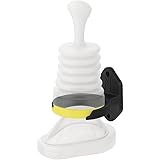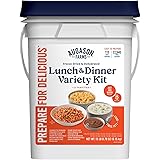Understanding the Risks
Identifying Local Hazards
In my personal experience, the first step to being prepared is knowing what you’re up against. Every city has its own set of risks, whether it’s earthquakes, floods, or even man-made disasters. It’s crucial to take the time to research and identify the specific dangers that could affect your area. Local government websites often have information on this, so don’t hesitate to dig in!
It’s like standing at the edge of a busy street; you wouldn’t just walk blindly across. You would look both ways, understand the traffic patterns, and gauge the risks involved. By knowing what hazards exist, you’re already several steps ahead in protecting you and your loved ones.
Having a clear understanding of local risks not only empowers you but also helps in developing a plan for those situations. Knowledge is key, and it gives you a solid foundation for what’s to come.
Community Awareness
One thing I learned over the years is that being prepared is not just an individual effort. It’s about community as well. Engaging with your neighbors about emergency preparedness can elevate your overall readiness. Who knows, maybe your next-door neighbor has some great tips or resources!
Try hosting a block party where the topic of discussion is emergency preparedness. You can swap stories, share resources, or even put together a neighborhood plan. It’s a fun and effective way to build rapport with your neighbors and foster a spirit of collaboration.
Communities that prepare together can respond more effectively during a crisis. So, get out there and talk to your neighbors about how you can all be better prepared for emergencies.
Monitoring Alerts
In today’s digital age, staying informed is easier than ever. Sign up for local alerts, whether it’s via your phone or email. Reliable emergency alerts can save lives. I can’t stress enough how important it is to receive timely information during emergencies.
Additionally, consider downloading apps that keep you informed about weather conditions or emergencies in your area. It’s like having a trusted sidekick at your fingertips! Don’t forget to stay connected to local news and participate in drills or community meetings that may enhance your awareness.
== > What if ... Get a FREE Subscription to PREPARE
Being in the know could mean the difference between a minor inconvenience and a major catastrophe. Make sure you’re plugged in so you can act quickly when the time arises.
Developing an Emergency Plan
Creating a Family Emergency Plan
This one hit home for me when I had to hunker down during a storm. I realized that my family needed a clear emergency plan. Gather everyone together and discuss various scenarios that might occur—natural disasters, power outages, you name it!
Map out a plan that includes safe meeting points, emergency contacts, and how to communicate during a crisis. I find that involving everyone, including kids, makes them feel included and less anxious about possible emergencies. You’d be surprised how much insight they can offer!
It’s also essential to regularly review and practice your plan. Think of it as rehearsal for a play; you want everyone to know their lines. Having your family trained and familiar with the emergency protocol will give you peace of mind.
Essential Supplies
Let’s talk about supplies. When I first started prepping, I went a bit overboard, thinking I needed everything under the sun. But slowly, I learned what was truly necessary. The basics typically include food, water, first aid kits, and other essentials.
I suggest starting with a three-day supply of food and water for each person in your household. Make it something you won’t mind eating—nobody wants to munch on tasteless MREs if they don’t have to! Think about non-perishable items that reflect your family’s tastes.
A well-stocked first-aid kit is also crucial. You never know when a small injury might require immediate attention. Do some research, and maybe even take a first-aid course to feel even more prepared. It’s an investment in your safety!
Communication Strategies
When things go awry, communication can be a lifesaver. I often think about how communication can break down in emergencies, and that’s why having a strategy in place is vital. Ensure everyone in your family has a way to reach out to one another.
Set up a group chat or choose a designated out-of-town contact for everyone to check in with. In a big city, cell towers can be overwhelmed, so having backup plans is essential. Sometimes, the simplest forms of communication, like a handwritten note, can make a world of difference.
Lastly, practice your communication plan. Make sure everyone understands how to contact one another in case of emergencies. Trust me, this preparation will calm a lot of nerves in the heat of the moment.
Training and Education
First Aid and CPR Training
Nothing beats knowing how to help someone in need, which is why I made it a priority to get certified in first aid and CPR. It’s empowering and could save a life. Many local organizations, like the Red Cross, offer classes, and they’re often very hands-on!
Not only is it important for adults to be trained, but it’s also beneficial for the whole family. I’ve taken a class with my kids, and they learned some pretty great skills that could come in handy during an emergency.
Plus, knowing that you can act when trouble strikes helps ease anxiety. Imagine the confidence you’ll feel when faced with a situation, equipped with the knowledge to help others.
Get Preparedness and Self-Reliance Tips. Subscribe Now!
Emergency Drills
Drills might sound boring, but they are crucial! I remember being part of an earthquake drill in school, and it surprisingly had a lasting impact. When the real moment came, I felt prepared. Implementing regular drills at home can ensure everyone knows exactly what to do.
Simulate different emergencies, whether it’s a fire or a flood, and walk through your plan. This repetition helps engrain the procedures in everyone’s minds. Trust me, if kids know what to do, it’ll give you comfort as a parent too!
Don’t forget to evaluate how these drills go and make any changes to your emergency plan if necessary. If you notice any confusion or chaos, take the time to adjust and practice until it feels right.
Community Resources and Workshops
Engaging with community resources can be incredibly beneficial when it comes to emergency preparedness. I often look out for workshops hosted by local agencies that cover various aspects of emergency readiness.
These workshops not only provide useful information, but they also often bring together community members who are interested in becoming better prepared, creating bonds along the way. You get to share experiences and learn from one another’s insights.
Keep an eye out for local events, fairs, and information sessions that can enhance your emergency knowledge. You never know what tip or tool you might come across that could make all the difference when a genuine crisis occurs.
Staying Informed Post-Crisis
Assessing Community Response
After an emergency, it’s helpful to look back and assess how the community responded. This can give insights into what worked and what fell short. I like to think of it as a learning opportunity—no crisis response is ever perfect.
Engage with local leaders and discuss what went down during the crisis. Was communication effective? Did resources reach those in need? By addressing these questions, your community can grow stronger and better prepared for future emergencies.
Sharing these assessments not only promotes accountability, but they inspire others to take their own preparedness seriously. Together, we can all refine our plans and enhance our readiness for whatever comes next.
Updating Personal Plans and Supplies
After going through a crisis, it’s crucial to revisit your emergency plans and supplies. I recommend setting a reminder every six months to review what you have on hand and if your plan still makes sense.
Things can change fast—hey, life happens! Maybe you’ve added a new family member, or your job situation has changed. Whatever it may be, your emergency preparedness strategy should be an evolving one. Update your supplies as necessary and have clear documentation of your changes.
Moreover, don’t forget to pass these updates along to your loved ones. Because in moments of crisis, the last thing you want is to be confused about who knows what. Transparency is essential!
Engaging in Community Recovery Initiatives
Finally, community recovery efforts are crucial following any disaster. There’s something remarkably healing about coming together to rebuild and support each other. Look for initiatives within your community to get involved with as soon as things start to settle.
Whether it’s volunteering to help those affected or participating in local forums about recovery plans, being active post-crisis not only aids others but can be a huge boost for your own mental health as well.
Plus, these activities help foster a sense of unity and resilience. You might find comfort in knowing you’re part of a community that’s willing to stand by each other, no matter how tough the going gets!
FAQs About Emergency Preparedness for Large Urban Areas
1. What are the most common hazards in urban areas?
Common hazards include natural disasters like earthquakes, hurricanes, and floods, as well as man-made threats such as terrorism and industrial accidents. Each city will have its own unique risks, so it’s important to assess your local area.
2. How can I effectively create an emergency plan for my family?
Start by discussing various emergency scenarios as a family. Plan safe meeting points and communication strategies. Make your plan available for everyone to see, and practice regularly to ensure everyone knows what to do.
3. What supplies must I keep in my emergency kit?
Your emergency kit should include essentials like non-perishable food, water, a flashlight, a first-aid kit, and personal items like medications. It’s good to keep it personalized to your family’s needs.
4. How often should I review my emergency plan and supplies?
It’s advisable to review your emergency plan and supplies at least every six months. This ensures that everything is up to date and accommodates any changes in your family or living situation.
5. Why is community involvement important in emergency preparedness?
Community involvement builds stronger networks and bolsters collective resilience. When everyone works together to prepare, response times and recovery efforts improve significantly during an actual emergency.






